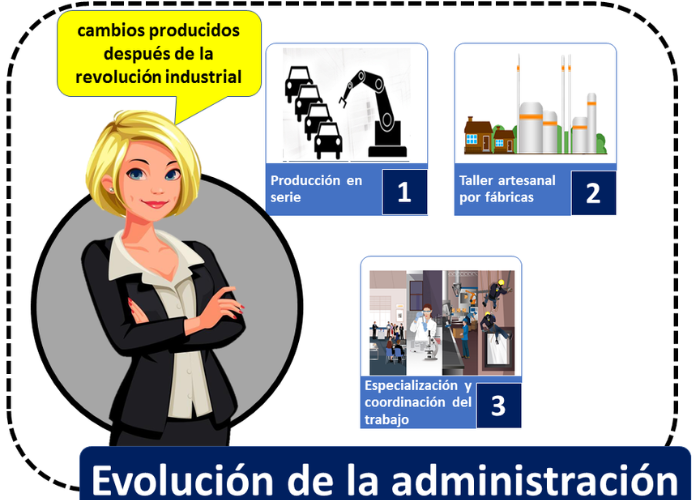Evolucion de la administration plays a crucial role in organizations, providing the framework for decision-making, coordination, and control. Over the years, administration has undergone significant transformations, adapting to changes in society, technology, and management practices. In this blog article, we will explore the historical overview of administration, the impact of industrialization on administrative practices, the rise of scientific management, administrative theories and approaches, the human relations movement, the advent of technology and its impact on administration, modern trends in administration, and conclude with a glimpse into the future of administration.
Historical Overview of Administration
Evolucion de la administration has been a fundamental aspect of human civilization since ancient times. In ancient civilizations such as Mesopotamia, Egypt, and China, administrative systems were developed to manage the affairs of the state.
These early administrative systems focused on maintaining law and order, collecting taxes, and organizing public works projects. The administrative practices of these civilizations laid the foundation for the development of modern administrative principles.
The Impact of Industrialization on Administration
The advent of the Industrial Revolution in the 18th century brought about significant changes in society and the economy. With the rise of factories and mass production, organizations became larger and more complex.
This necessitated the need for more efficient administrative practices to manage these organizations effectively. Industrialization led to the emergence of bureaucratic structures and hierarchical systems of authority, which became the dominant administrative model in the 19th and early 20th centuries.
The Rise of Scientific Management
Frederick Winslow Taylor, an American engineer, is often credited as the father of scientific management. In the early 20th century, Taylor proposed that organizations could achieve higher levels of productivity by using scientific methods to analyze and optimize work processes.
He emphasized the importance of time and motion studies, standardization, and the division of labor. Taylor’s ideas revolutionized administrative practices, leading to increased efficiency and productivity in organizations.
Administrative Theories and Approaches
As organizations continued to evolve, various Evolucion de la Administracion theories and approaches emerged. Henri Fayol, a French mining engineer, developed the theory of classical management, which focused on principles such as division of labor, scalar chain, and unity of command. Fayol’s principles provided a framework for administrative practices and influenced management thinking for decades to come.
In addition to classical management, other theories and approaches such as the neoclassical theory, systems theory, and contingency theory emerged, providing different perspectives on administration. These theories emphasized the importance of human factors, the interdependence of organizational components, and the need for flexibility in administrative practices.
The Human Relations Movement and Its Influence on Administration
In the early 20th century, the human relations movement emerged as a response to the mechanistic and impersonal nature of administrative practices. The human relations movement emphasized the importance of social and psychological factors in the workplace.
Researchers such as Elton Mayo conducted studies that showed the impact of social relationships and employee satisfaction on productivity. This led to a shift in administrative practices, with a greater emphasis on employee welfare, motivation, and participation in decision-making.
The Advent of Technology and Its Impact on Evolucion de la Administracion
The advent of technology, particularly in the form of computers and the internet, has had a profound impact on administrative practices. The use of technology has revolutionized communication, information management, and decision-making processes.
Administrative tasks that were once time-consuming and labor-intensive can now be automated, allowing administrators to focus on more strategic and value-adding activities. Technology has also facilitated the decentralization of administrative functions, enabling organizations to operate globally and remotely.
Modern Trends in Administration
In recent years, several trends have emerged in the field of Evolucion de la Administracion. One such trend is the shift towards a more agile and flexible administrative approach. Organizations are recognizing the need to adapt quickly to changing market conditions and customer demands. This has led to the adoption of agile methodologies and practices, which emphasize collaboration, adaptability, and continuous improvement.
Another trend is the increasing focus on diversity and inclusion in administrative practices. Organizations are realizing the value of a diverse workforce and are taking steps to ensure equal opportunities and representation. This includes implementing policies and practices that promote diversity, equity, and inclusion at all levels of the organization.
Additionally, the rise of data analytics and business intelligence has enabled organizations to make more informed decisions based on data-driven insights. Administrators are now able to leverage advanced analytics tools to analyze large volumes of data and gain valuable insights into organizational performance, customer behavior, and market trends.
Conclusion
As we look to the future, it is clear that administration will continue to evolve in response to societal, technological, and economic changes. The administrative practices of the future will likely be characterized by increased automation, the integration of artificial intelligence, and a greater emphasis on sustainability and ethical practices. Administrators will need to adapt to these changes, acquiring new skills and competencies to effectively navigate the evolving landscape.
In conclusion, the evolution of administration has been shaped by a multitude of factors, including historical developments, industrialization, scientific management, administrative theories, the human relations movement, technological advancements, and modern trends.
The field of administration will continue to play a vital role in organizations, providing the necessary structure and support for efficient and effective operations. As we move into the future, administrators will need to embrace change, leverage technology, and foster a culture of continuous improvement to thrive in the dynamic and complex business environment.




